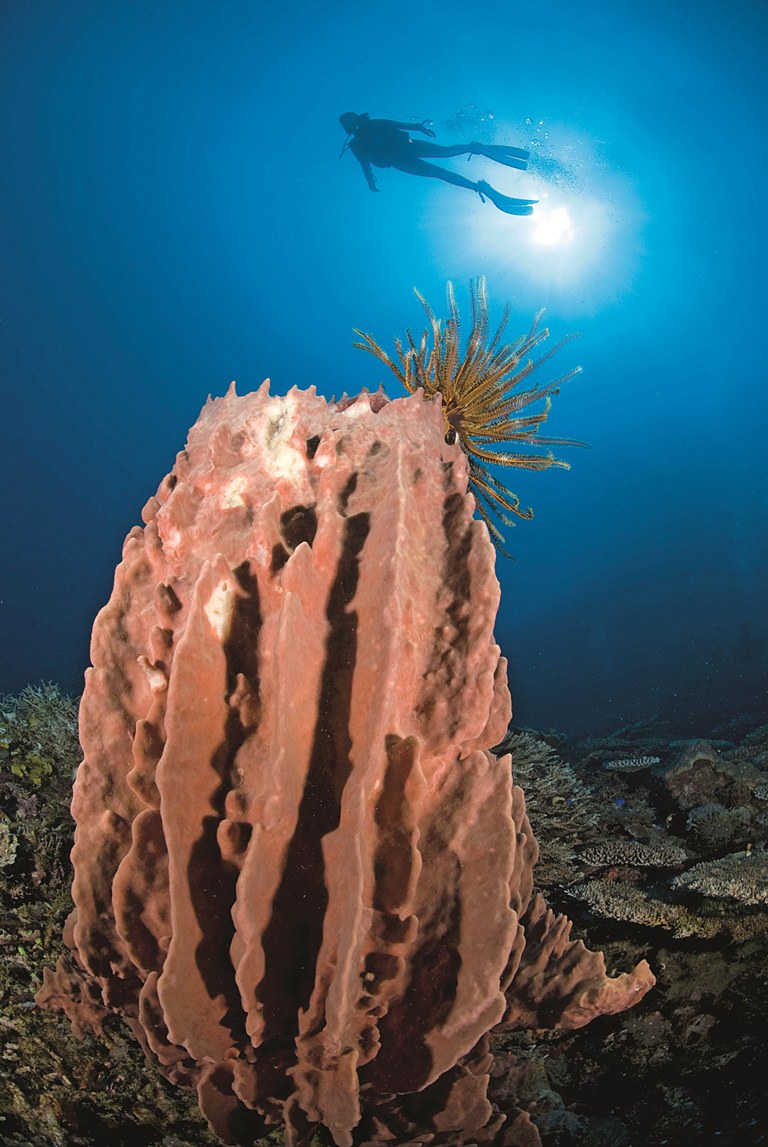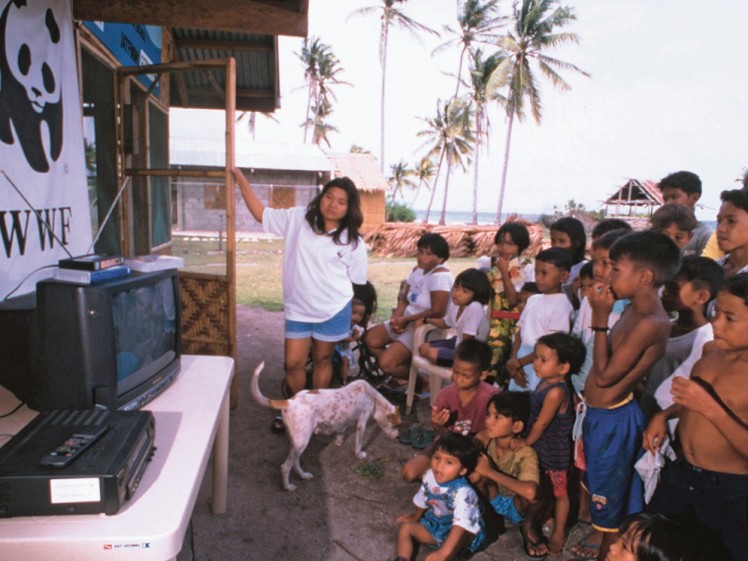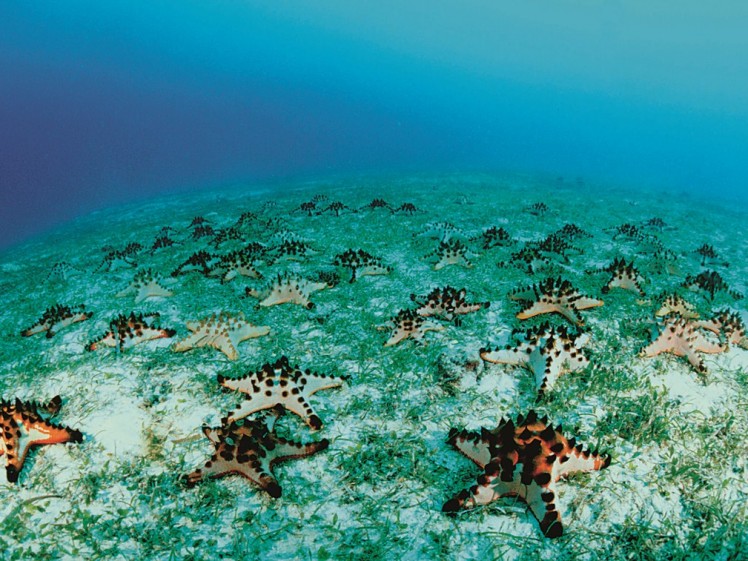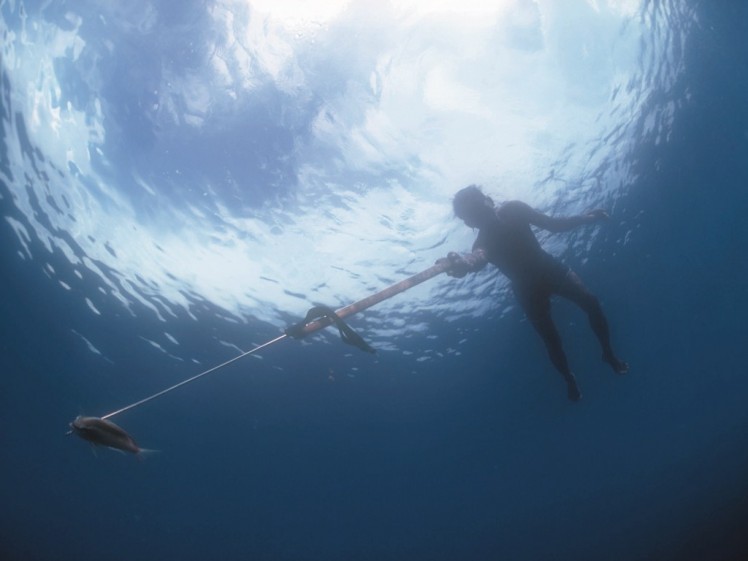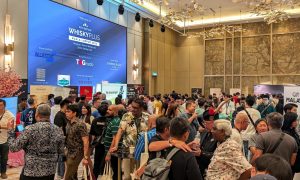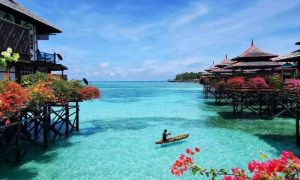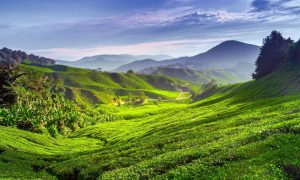Malaysian waters border an area that is larger than India and as diverse as the Amazon rainforest. Hugh Ujhazy explores the coral triangle.
India is a country with a population numbering over one billion, the second-largest group of human beings on the planet after China. Those people are jammed into an area only one-third the size of China, and yet India has for centuries been the birthplace of culture, science, literature, and architecture that have touched virtually every country in Asia, given birth to the icon of one of the largest religions on earth, and is now one of the powerhouse nations in the economies of the emerging world.
An area of the ocean bounded by Malaysia, Indonesia, Papua New Guinea, the Philippines, Solomon Islands, and Timor Leste is slightly larger than India’s four million square kilometers, but has a similar population density and significance to every person who has ever gazed lovingly on a plate of fish head curry, eaten a tuna sandwich, or contemplated a crab swimming in chili sauce. Known as the nursery of the seas, this region is home to over 75% of known coral species, 6,000 coral reef fish species, and six of the seven marine turtles found in the world.
Paolo Mangahas, from the WWF (World Wide Fund for Nature) Coral Triangle Programme, acted as tour guide for a virtual passage through the heart of the Coral Triangle one overcast day in Kuala Lumpur. The weather matched the message.
“WWF has been pioneering conservation in the Coral Triangle for more than two decades, collaborating with partners in the private sector, government and civil society,” notes Paolo. “In 2007, the Coral Triangle Initiative on Coral Reefs, Fisheries, and Food Security was formed by the six governments to coordinate development efforts and safeguard the health of this region’s natural resources on which millions of lives depend for food and livelihood.”
The cycle of life in this area is complex. Thousands of species call the Coral Triangle home, including commercially valuable tuna, returning each year to spawn in the rich waters and beneath the shelter of the corals.The young compete and grow in the shallow, temperate waters before migrating out into the greater Pacific Ocean to grow to maturity before circling back to spawn. And the cycle continues.
Paolo notes that the Coral Triangle is a significant part of the global ecosystem. “It is the world’s center of marine life whose unparalleled abundance feeds millions of people and sustains thousands of businesses – not only in this region, but beyond.” Many of these marine animals fit nicely on a plate. Malaysia and its neighbors are distinguished as being some of the highest consumers of fish as their main source of protein. And why not? The ocean is at our doorstep, the catch is plentiful, and the sun shines down upon crystal-clear waters.
Thunder chimes in from outside the offices of WWF. “It is this escalating global demand for fish that is literally emptying our seas and driving unsustainable fishing practices. The trade in live reef food fish, for example, has rapidly spread out across the region in the last three decades alone. This lucrative trade, mostly of groupers, feeds a growing appetite for luxury seafood in affluent markets in mainland China, Hong Kong, Singapore, and here in Malaysia. Tuna fishing, on the other hand, has intensified exponentially over the past 15 years. The spawning and nursery grounds of the Coral Triangle support this multi-billion dollar industry. Tons of over-exploited species such as yellowfin and bigeye tuna are caught by large fishing fleets out in the Pacific and then sold to thriving markets in Japan, US and Europe.” Paolo is somber as he considers those words. “Local fishers in the Coral Triangle end up catching the juveniles and have to catch more to make up for local needs since the fish are smaller. The benefit of the fully grown tuna is reaped by the fleets up north.”
This inequity and the challenge to preserving the abundance of the Coral Triangle is what WWF and its partners are trying to address. Just as farmers of cattle, sheep, and chickens tend to their flocks, making sure that only enough are taken for food and that those who remain reproduce and grow the flock, the apparently limitless bounty of the Coral Triangle also needs to be tended. “Responsible fishing and consumption is the key message here. Consumers across Asia and the world can become aware of the threats to what they eat and choose more sustainable alternatives. How each of us lives our lives has a direct impact on how the ocean’s resources are used.”
Paolo is upbeat – there is focus and attention on the preservation of this treasure. Support from the fishing industry itself is coming into the area to help develop sustainability and recent conferences have bought together key players from both private and public sectors to work together on methods to reduce the collateral damage caused by fishing, such as the accidental catch of sharks, turtles, dolphins, juvenile fish, and other endangered species. “A few years ago, the Coral Triangle Fishers Forum in Bali brought together, for the first time ever, a large group of fishers, scientists, suppliers and retailers from the region to collaborate and build each other’s capacity in adopting more responsible fishing practices” he says. “This is just one of the many collaborative efforts that we shall continue to see happening in this region.”
The waters of the Coral Triangle beat against Malaysian shores. Divers, tourists, and sun lovers from around the world enjoy the pristine waters, the amazing variety of aquatic life, and the magnificence of unspoiled vistas of coral and white sand. Realising that it is also the source of so much of the marine richness we enjoy and rely on creates an acute sense of responsibility and awe. It’s ours to use or abuse – which will you choose?
For more information on the coral triangle and what you can do to help conserve it, visit www.panda.org/coraltriangle.
Read This: Six Diving Questions You’ve Always Wanted to Ask
Source: The Expat Magazine April 2015



